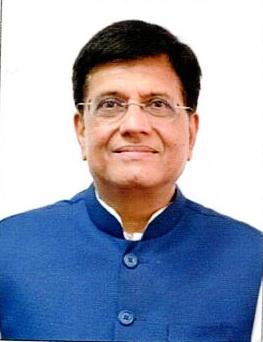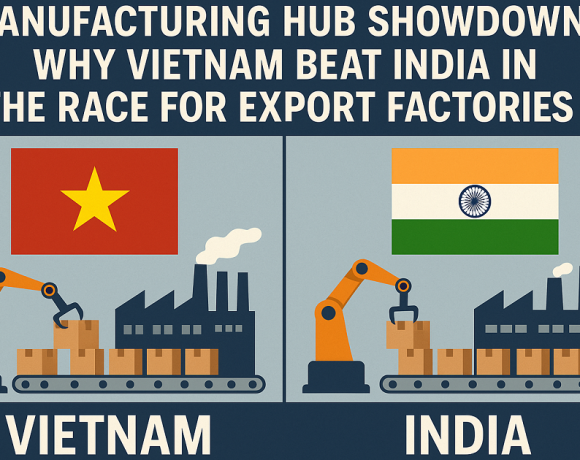
Piyush Goyal’s Startup Sermon Exposes Government Hypocrisy
Commerce and Industry Minister Piyush Goyal’s recent remarks on Indian startups have managed to ruffle more feathers than a pigeon in a blender. Speaking at the Startup Mahakumbh 2025, Goyal lamented the state of India’s startup culture, accusing entrepreneurs of indulging in “dukaandari”—a not-so-subtle jab at food delivery apps and gig economy platforms that, according to him, merely serve the rich their late-night desserts rather than pushing the nation toward technological glory. This scolding from a government minister would’ve been amusing—if it weren’t so deeply hypocritical.
Let’s get this straight: the same government that rolls out red carpets for these very platforms at every investment summit, that showcases Blinkit, Swiggy, and Zomato as shining examples of “Digital India,” is now frowning at them for not building batteries and rockets. What next? Shaming IRCTC for not launching a space program? Goyal’s sermon would have landed better if the government had spent the last decade doing what it promised—supporting startups, protecting gig workers, and streamlining the jungle of bureaucratic hurdles that suffocate innovation in this country.
Start with the gig economy, the favorite punching bag in this whole debate. India’s gig workforce stood at 7.7 million in 2020-21 and is expected to explode to 23.5 million by 2030. These workers are not the founders on Shark Tank or the developers writing code in Gurgaon offices. They are the men and women zipping across cities on bikes, dodging potholes, traffic, and police bribes to deliver your vada pav in under ten minutes. Their contribution to the GDP is undeniable—whether through retail, logistics, or consumption. Yet, beneath that contribution lies a rotten truth: they have no social security, no minimum wage protections, and no legal support when the algorithm decides to slash their pay or deactivate them overnight.
Goyal’s government is well aware of this. In fact, in 2020, it passed the Code on Social Security with great fanfare, promising a brave new world where even gig workers would have insurance, pensions, and dignity. Fast forward to 2025—and that law is still sitting in the locker of bureaucratic indecision, collecting dust like every other reform that required actual follow-through. The Supreme Court itself had to step in recently, demanding to know why the government hadn’t implemented the law it so proudly advertised. Meanwhile, Rajasthan and Karnataka have done the Centre’s job for it, drafting and passing their own state-level welfare laws for gig workers. So much for cooperative federalism.
What makes the hypocrisy more galling is Goyal’s lofty comparison with Chinese startups. He claimed Indian entrepreneurs were stuck delivering pizzas while the Chinese were building the future—robots, electric batteries, 3D manufacturing, you name it. The implication is that Indian startups lack ambition. But let’s ask the obvious: where is India’s deep-tech ecosystem? Where are the grants, the R&D tax credits, the infrastructure to support hardware startups, AI labs, and clean tech? Indian entrepreneurs aren’t allergic to innovation—they just don’t have the oxygen to breathe in a system designed to kill risk with regulation.
Speaking of regulation, let’s take a stroll through the bureaucratic hellscape that passes for the Indian startup environment. A startup today must navigate multiple ministries, constantly shifting compliance rules, delayed payments from government clients, GST complications, FDI bottlenecks, and licenses that require an entire legal team to decipher. “Ease of doing business” looks great on PowerPoint slides, but on the ground, it’s still “Please sir, stamp this paper and come back next Tuesday.” The startup ecosystem in India doesn’t lack ambition—it lacks air. And it’s the government holding the plastic bag over its head.
The irony runs deeper. Food and grocery delivery platforms have enabled mass employment at scale, brought convenience to millions, and helped build logistics and tech capabilities that the government now wants to disown. When it suits the narrative, these startups are heralded as unicorns and case studies for a global audience. When it doesn’t, they’re reduced to “dukaandaars.” What’s worse, this kind of disdain is directed at an ecosystem that is operating without a net. Startups fail because India’s system is built on “friction by design”—every form, every license, every nod from the sarkari babudom comes with its own maze. And when these founders build what’s feasible, not what’s idealistic, the minister lectures them on dreaming bigger.
Here’s the truth: the startup ecosystem, despite all its flaws, is not what’s dragging India down. It’s the glacial policy pace, the regulatory maze, and the performative politics of a government that excels at announcements and fails at delivery. If anyone deserves the title of “dukaandaar,” it’s not the entrepreneurs building platforms that work—it’s the ministers selling promises they never intend to fulfill.
Perhaps, before the next public sermon, the government should take a moment to introspect. Why is it that startups are forced into quick-delivery models? Why is gig work the only employment option growing rapidly? Could it be—just maybe—that the state failed to create the ecosystem for anything better?
And until the day comes when the government can build a welfare net that actually catches the people it claims to care about, maybe ministers should hold off on the stand-up routines. Because right now, the only thing being delivered on time in this country is blame. And unfortunately, there’s no tip for that.


















